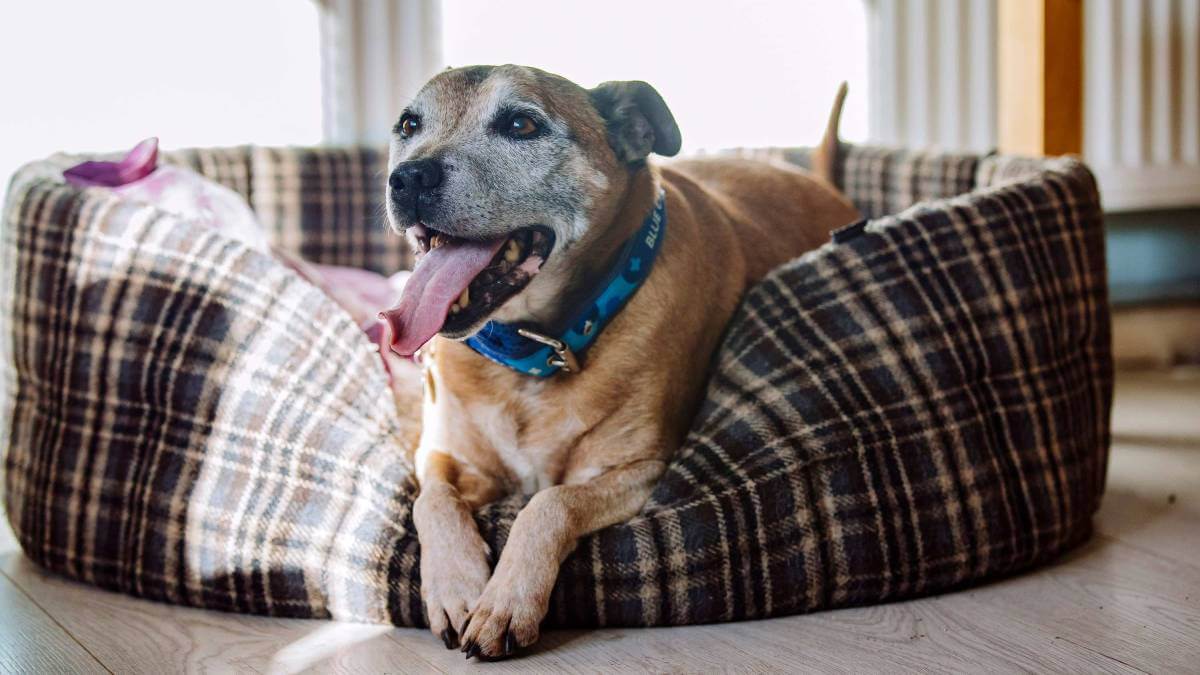You may feel your dog is just another member of the family – but chances are his distinct odour sets him apart from his human ‘relatives’.
That poochy pong often permeates the whole house, although many owners aren’t aware of it because they get so used to it. Visitors, however, will usually be able to quickly sniff out the fact they’re entering a house where a dog lives.
Of course, considering how much joy pets bring, dealing with muddy paw prints and hair on the furniture is part and parcel of living with a pet – but there are steps you can take to help minimise the stink factor.
Mandy Jones, director of rehoming services at the pet charity, Blue Cross (bluecross.org.uk), says: “Dogs like to be able to smell themselves in their home, so homes should always smell of them at least a bit. Over-cleaning and removing the smell completely could lead to a dog marking and urinating, which is obviously not desirable.”
Ms Jones suggests potential dog owners should research different breeds before getting a dog, as different coat types can determine how a dog smells. “If any smell at all would offend, it might be better to have a pet of a different species,” she adds.
Already have a beloved pooch, but keen to find out how to stop the whole house smelling like a kennel? These 12 tips could help …
1. Wash the dog’s bed

Make sure the dog’s bed is odour resistant, or at least washable. Usually, beds have a washable cover that you can slip off and put in the washing machine. The inside of the bed may not smell, but if it does you may be able to wash that too – if the washing instructions say you can, and if it’s not too big for the machine. “To minimise doggy smells, make sure they have their own bed and wash it regularly,” says Ms Jones.
2. Wash everything else regularly
If you let the dog on the furniture, Ms Jones suggests using throws that can be easily removed and washed. In addition, regularly wash the dog’s toys, blankets, etc. Also regularly wash your dog’s collar and lead – put them in a pillowcase first to stop the metal bits banging against the side of the washer drum. When washing doggy items, it can help to add a little apple cider vinegar or distilled white vinegar to the washing detergent – vinegar helps neutralise dog smells.

3. Brush smells away
Groom your dog regularly, rather than bathing it, to keep its coat clean without washing out essential oils. Ms Jones says bathing may cause skin problems and make matters worse.
4. Check ears and teeth
Smells don’t just come from a dog’s coat, they may also emanate from its ears or teeth, so check these areas regularly, and take your dog to the vet if you smell or spot something that could be a problem.
5. Use an air purifier
Air purifiers can cut down on airborne odours, and good ones will not only filter particulate matter, but will also kill bacteria and fungi in the air.
6. Introduce nice smells
Although they won’t get rid of a doggy smell, (pet-friendly) air fresheners and scented candles will at least disguise it, as will simply opening windows and letting some fresh air in. “Keep rooms aired by opening windows often, and consider using incense, scented candles or pet-friendly air fresheners to keep rooms smelling pleasant,” suggests Ms Jones. “But don’t spray the dog!”
7. Clean the floors, carpets and upholstery

Mop hard floors with a pleasant-smelling cleaner, vacuum carpets well, and buy or hire a carpet cleaner and use it regularly to help get rid of deeply embedded dog dander, dirt and hair in both carpets and upholstery on sofas, etc. Always make sure the carpets are completely dry before allowing your dog back onto them.
8. Tackle super-smelly spots
If you’ve washed everything and there’s still a lingering smell, it could be where your dog’s soiled the floor in the past. You may have to identify the source through sniffing the floor close-up, but once you know exactly where the remaining smell is coming from, either buy an odour-repellent product, or make your own odour neutraliser by mixing two cups of white vinegar, four tablespoons of bicarbonate of soda and enough water to fill a spray bottle.
Test the solution on a hidden bit of carpet to make sure it doesn’t discolour it, and if it doesn’t, spray the mixture on the smelly area(s), let it soak in, and then blot it dry with a clean cloth.
9. Banish with bicarb
Bicarbonate of soda can help to neutralise smells, so put an open container of it near the dog’s toys and/or bed. It can also help to sprinkle bicarb on carpets, leave it overnight and vacuum it up the next day.
10. Buy a new collar
Your dog’s collar may smell terrible, and while most collars can be washed, if it’s old, it might be best to just buy a new one.
11. Wipe paws
Keep an absorbent door mat and towel by the door and always wipe your dog’s paws when he or she comes in the house from outside, thus preventing him/her bringing in anything smelly.
12. Dry wet dogs completely
If your dog’s been swimming or got wet, make sure you dry him completely to avoid that ‘wet dog smell’ from tainting your carpets and furniture. That means drying thoroughly with a towel, or even using a hair dryer on a cool setting if the dog lets you.
Also read: Vet shares his list of the worst dog breeds to own
– With PA

